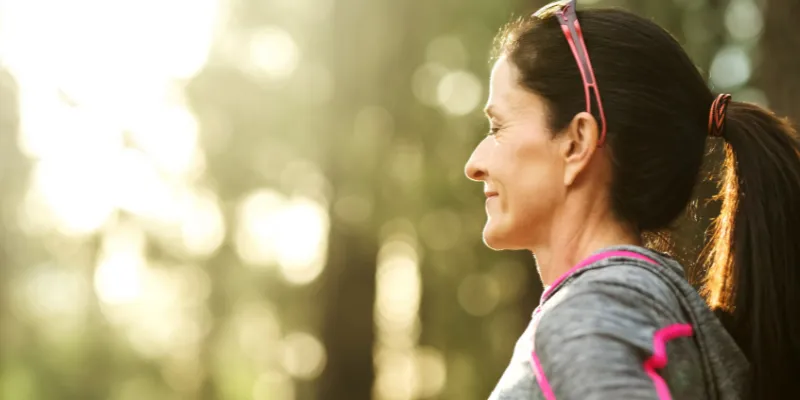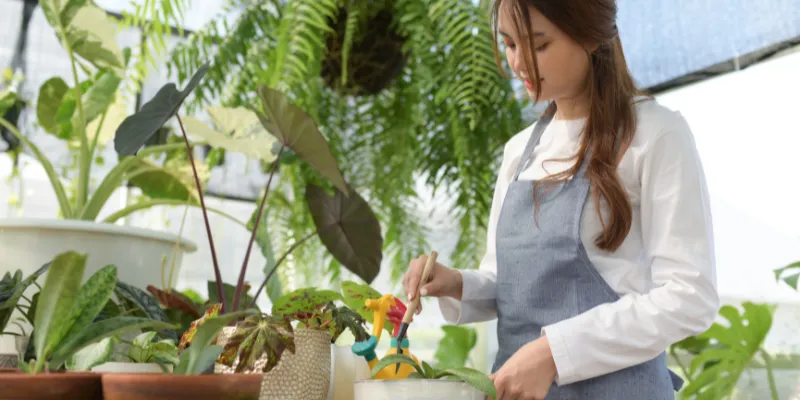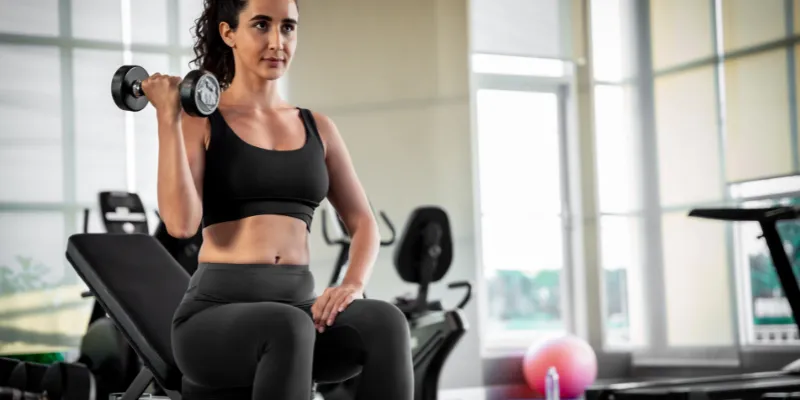How to manage your personal energy while organizing your home
Taking care of your personal energy: theOrganizing your home can be both a liberating and exhausting task.
Advertisements
However, the impact of this activity goes beyond tidy closets and clean surfaces: it directly influences your personal energy.
Taking care of your personal energy while organizing your home is essential to transforming this process into an experience that nourishes, rather than drains, your physical, mental, and emotional well-being.
Find out more below!
Taking care of your personal energy

Advertisements
After all, why let home organization drain your vitality when it can be an ally in achieving balance?
Personal energy is like fuel in a car: without it, you won't get anywhere.
Just as a vehicle needs maintenance to run efficiently, your energy requires attention to maintain mental clarity and energy.
Organizing your home, when done consciously, can be an opportunity to recharge that energy, instead of wasting it.
This text explores practical, creative, and intelligent strategies for keeping your vitality intact during the process, with original examples, a relevant statistic, a powerful analogy, and answers to common questions.
Additionally, we will discuss how organizing your home can reflect your inner state, offering a way to harmonize your external and internal environments.
++ Tips for a more emotionally “breathable” home
With practical approaches and deep reflection, you'll learn how to transform the task of tidying your home into an act of self-care.
The Connection Between Organization and Personal Energy

First of all, it is crucial to understand that physical disorder often mirrors mental disorder.
A 2011 Princeton University study found that cluttered environments increase levels of the stress hormone cortisol by up to 20% in people regularly exposed to them.
This means that by ignoring clutter, you not only compromise your physical energy, but also overload your mind.
++ How cooking can become therapeutic
On the other hand, organizing your home with intention can create a virtuous cycle, where a clean environment reflects and reinforces inner clarity.
Imagine your personal energy as a current of water in a river.
When the bed is full of obstacles, such as branches or stones (in this case, clutter or excess objects), the water flows with difficulty, losing strength.
Organizing your home is like cleaning that bed, allowing energy to flow freely.
However, the organization process can be exhausting if not done strategically.
Therefore, it is essential to plan the task so that it respects your energy limits, rather than exhausting them.
Plus, organization isn't just about throwing things away or tidying drawers.
It's about creating a space that resonates with who you are and what you want to feel.
By taking care of your personal energy during this process, you transform your home into a sanctuary that recharges, rather than drains, your vitality.
++ Colors that convey peace: how to use them in decoration
Next, we'll explore practical strategies for achieving this balance.
Strategies to Protect Your Energy While Organizing

Image: Canva
Plan with Intention
Organizing your home without a plan is like trying to cook a fancy meal without a recipe or prepared ingredients.
Before you begin, take a moment to set your intentions.
Ask yourself: How do I want to feel at the end of this process?
This initial reflection helps align your actions with your well-being, preventing the task from becoming a source of exhaustion.
Break your organization down into smaller steps, such as focusing on one room at a time or a specific category, like clothes or papers.
For example, Clara, a 34-year-old designer, decided to organize her home after realizing that the clutter in her office was making her anxious.
Instead of trying to tidy everything up in one day, she dedicated 30 minutes a day for a week to categorizing papers, donating unnecessary items, and creating a filing system.
In the end, not only was her office organized, but she also felt lighter and more focused.
In short, this gradual approach preserved his energy and brought lasting results.
Additionally, planning with intention involves respecting your natural rhythms.
If you're more productive in the morning, reserve that time for tasks that require more mental energy, like making decisions about what to keep or discard.
At night, when energy tends to decrease, focus on lighter activities, such as folding clothes or cleaning surfaces.
This strategy ensures you manage your personal energy while advancing within the organization.
|
Stage |
Estimated Duration |
Energy Tip |
|---|---|---|
|
Planning |
10-15 minutes |
Make a clear list to avoid overload. |
|
Organization by room |
30-60 minutes/day |
Work in short blocks to stay focused. |
|
Maintenance |
5-10 minutes/day |
Create daily habits to avoid accumulating clutter. |
Practice Conscious Detachment
Letting go of objects can be emotionally challenging, but it's an essential step in caring for your personal energy.
Every item you keep carries a story, an emotion, or a memory, and accumulating unnecessary objects can weigh you down energetically.
However, letting go doesn't mean throwing everything away without criteria. On the contrary, it's an act of reflection on what truly adds value to your life.
Consider the case of John, a professor who kept boxes of his undergraduate papers, taking up space in his small apartment.
So, when he decided to review these items, he realized that many were irrelevant to his current life.
He separated what still had sentimental value, digitized important documents, and recycled the rest.
The process, although initially difficult, brought a sense of relief and freedom, as if he had made space not only in his closet, but also in his mind.
To facilitate letting go, use the “three whys” technique.
Ask yourself three times why you want to keep an item. If the answers aren't convincing, it's time to let it go.
Also, celebrate each decision to let go as a step towards a lighter environment.
This practice not only organizes your home, but also strengthens your personal energy by releasing the emotional weight of unnecessary objects.
Integrate Restorative Breaks
Organizing your home can be physically demanding, especially if it involves moving furniture or cleaning neglected areas.
Therefore, incorporating restorative breaks is essential to protect your energy.
Instead of working yourself to exhaustion, plan regular breaks to recharge.
So, these breaks can include a short meditation, stretching, or even a moment to enjoy a cup of tea.
An effective approach is the adapted Pomodoro Technique: work for 25 minutes and rest for 5. During your break, avoid stimuli such as social media, which can fragment your attention.
Instead, try closing your eyes and breathing deeply for a few minutes.
This practice helps maintain mental clarity and prevents organization from becoming a grueling marathon.
Also, use breaks to assess your progress.
In other words, reflect on how the space is transforming and how this impacts your state of mind.
This conscious connection between organizing and caring for your personal energy creates a positive cycle, where each small step forward reinforces your vitality.
|
Break Type |
Duration |
Energy Benefit |
|---|---|---|
|
Stretching |
5 minutes |
Improves circulation and relieves tension. |
|
Guided meditation |
5-10 minutes |
Reduces stress and promotes mental clarity. |
|
Hydration and snack |
5 minutes |
Maintains physical energy levels. |
Organization as a Self-Care Ritual
Turning organization into a self-care ritual is a powerful approach to managing your personal energy.
Instead of viewing the task as an obligation, see it as an opportunity to nourish your mind and spirit.
For example, play some music you love while you organize, or light a candle with a calming scent.
In this sense, these small gestures transform the process into something pleasurable, rather than tedious.
Furthermore, organization can be a form of self-knowledge.
When deciding what to keep or discard, you reflect on your values, priorities, and even your dreams.
A closet full of clothes you don't wear can reveal an attachment to the past, while a cluttered desk can indicate difficulty prioritizing.
By addressing these issues, you not only organize your home, but also align your life with what really matters.
Finally, celebrate your achievements, no matter how small.
Finishing organizing a drawer or cleaning a shelf is a step toward creating a space that reflects who you are.
This sense of accomplishment strengthens your personal energy, creating a positive connection between you and your space.
Taking care of your personal energy: Frequently Asked Questions
|
Question |
Response |
|---|---|
|
How to avoid feeling guilty when letting go of objects? |
Practice conscious detachment by reflecting on the item's current value. Ask yourself, "Does this contribute to my energy or weigh me down?" |
|
Can I organize the house if I have little time? |
Yes! Focus on short blocks of 15-30 minutes a day, prioritizing a small area, like a drawer or shelf. |
|
How do I know if I'm overwhelmed while organizing? |
Pay attention to signs like irritation, excessive fatigue, or difficulty concentrating. Take breaks and reevaluate your pace. |
|
When is the best time to start organizing? |
Choose a time when you feel energized, like in the morning, and plan ahead to avoid impulsive decisions. |
Conclusion: Taking care of your personal energy
Taking care of your personal energy while organizing your home is more than a practical strategy; it's a philosophy of life.
In this sense, by planning with intention, practicing conscious detachment, and integrating restorative breaks, you transform organization into an act of self-care.
More than that, you create an environment that reflects who you are and supports your goals.
Every object you choose to keep, every drawer you organize, is an opportunity to align your outer space with your inner energy.
So why not turn organizing your home into a ritual that boosts your vitality?
In short, start small, celebrate progress, and allow your home to become a reflection of the best version of you.
